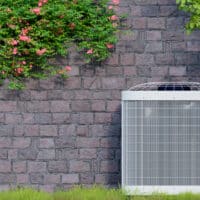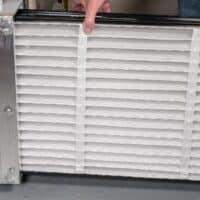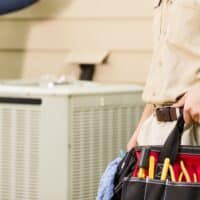The Benefits of Whole-House Air Filtration Systems
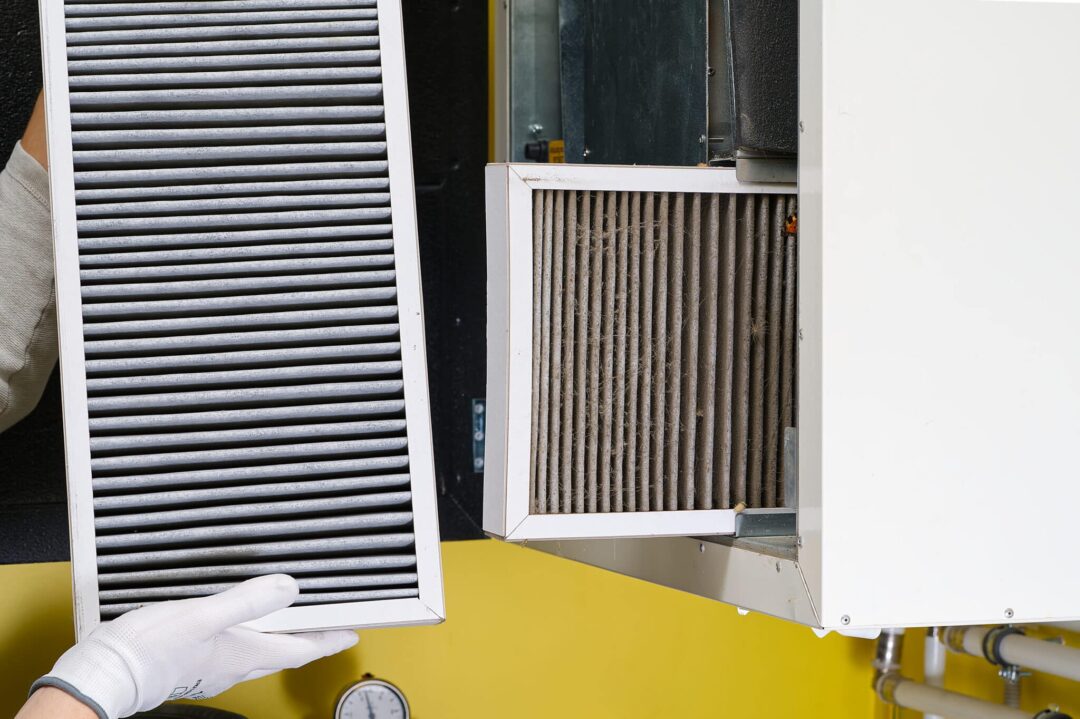
Ever wonder why whole-house air filtration systems are gaining popularity among homeowners?
Whole-house air filtration systems are designed to purify the air throughout your entire home, providing clean and healthy indoor air.
These systems are integrated with your HVAC system to filter out pollutants, allergens, and other airborne particles. They ensure that every room in your house has consistently clean air, making them a superior choice compared to portable air purifiers.
In terms of cost-effectiveness, while the initial investment might be higher than purchasing several portable units, the long-term savings are substantial. Maintenance costs are relatively low, and the improved efficiency of your HVAC system can lead to further financial savings.
The ease of use makes whole-house systems a convenient choice. Once installed, they require minimal user intervention. Regular maintenance is straightforward, ensuring you have a hassle-free experience.
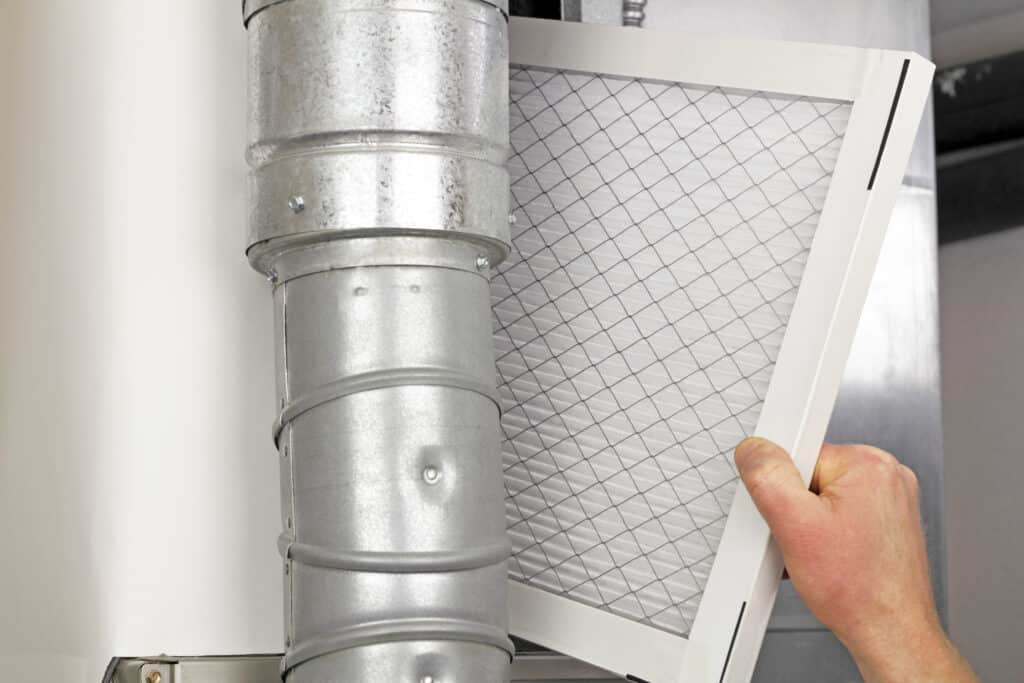
What are Whole-House Air Filtration Systems?
Whole-house air filtration systems are advanced devices designed to clean the air throughout an entire home. These systems are integrated with the home’s HVAC (Heating, Ventilation, and Air Conditioning) system, ensuring that the air circulating through your ducts is purified before it reaches any room.
Overview of Benefits
Whole-house air filtration systems offer a wide range of benefits:
- Comprehensive Air Purification: Unlike portable air purifiers that only clean the air in a single room, whole-house systems ensure every corner of your home has clean air.
- Enhanced Health: By removing airborne pollutants such as dust, pollen, pet dander, and mold spores, these systems significantly improve indoor air quality, reducing allergy and asthma symptoms.
- Convenience: Once installed, whole-house systems operate seamlessly with your HVAC system, requiring minimal maintenance.
- Energy Efficiency: These systems can be more energy-efficient than using multiple portable units, leading to potential savings on your energy bills.
- Cost-Effectiveness: Although the initial investment may be higher, whole-house systems often result in long-term savings due to reduced energy consumption and lower maintenance costs.
How Whole-House Air Filtration Systems Work
Understanding the mechanics of whole-house air filtration systems can help you appreciate their efficiency and effectiveness. These systems are designed to work seamlessly with your existing HVAC setup to ensure every room in your home benefits from cleaner air.
Basic Mechanics
Whole-house air filtration systems are integrated into the HVAC system, usually at the return air duct. As air circulates through the HVAC system, it passes through a series of filters that capture and remove pollutants. This process ensures that the air being distributed throughout your home is purified.
Types of Filters Used
There are several types of filters used in whole-house air filtration systems, each with its specific benefits:
- HEPA Filters: High-efficiency particulate Air (HEPA) filters are known for their ability to trap 99.97% of particles as small as 0.3 microns. They are highly effective at removing dust, pollen, and other allergens.
- Activated Carbon Filters: These filters are excellent at removing odors, chemicals, and gases from the air. They work by adsorbing pollutants onto the surface of the carbon material.
- Electrostatic Filters: These filters use an electric charge to attract and capture airborne particles. They can be washed and reused, making them a cost-effective option.
- UV Filters: Ultraviolet (UV) filters use UV light to kill bacteria, viruses, and mold spores, providing an additional layer of protection against harmful microorganisms.
By using a combination of these filters, whole-house air filtration systems can provide comprehensive air purification, ensuring that your indoor air is as clean as possible.
Health Benefits
Whole-house air filtration systems are not just a luxury; they are a vital component for maintaining a healthy living environment. By eliminating a wide range of airborne contaminants, these systems can significantly improve your overall health and well-being.
Reduction of Allergens and Pollutants
One of the most significant benefits of whole-house air filtration systems is their ability to reduce allergens and pollutants. These systems capture dust, pollen, pet dander, and other common allergens that can trigger allergic reactions. For individuals with allergies or asthma, reducing these irritants can lead to a noticeable improvement in symptoms.
Moreover, whole-house air filtration systems can also filter out pollutants such as mold spores, bacteria, and viruses. This is particularly important for maintaining a hygienic environment, as exposure to these contaminants can lead to respiratory infections and other health issues.
Impact on Respiratory Health
Clean air is essential for respiratory health. By removing harmful particles from the air, whole-house air filtration systems help to protect your lungs and respiratory system. For individuals with chronic respiratory conditions such as asthma, COPD, or bronchitis, clean air can make a significant difference in managing their symptoms and improving their quality of life.
Additional Health Benefits
- Better Sleep: Cleaner air can lead to better sleep quality. By reducing airborne irritants that can cause congestion and discomfort, whole-house air filtration systems can help you breathe easier at night.
- Enhanced Immunity: Reducing exposure to airborne pathogens helps to lessen the load on your immune system, allowing it to function more efficiently. This can be especially beneficial during flu season or in homes with young children and elderly family members.
- Improved Mental Clarity: Studies have shown that poor indoor air quality can impact cognitive function and productivity. By ensuring that you are breathing clean air, whole-house air filtration systems can help improve your mental clarity and overall well-being.
Improving Indoor Air Quality
Whole-house air filtration systems are a game-changer when it comes to improving indoor air quality. They offer a comprehensive solution that outperforms portable air purifiers in several key areas.
Comparison with Portable Air Purifiers
Portable air purifiers are designed to clean the air in a single room or small area. While they can be effective in confined spaces, they lack the capacity to purify the air throughout an entire home. Here’s why whole-house air filtration systems are superior:
- Coverage: Whole-house systems are integrated into your HVAC system, ensuring that clean air is distributed to every room. This means you benefit from clean air no matter where you are in your home.
- Efficiency: Whole-house systems use high-capacity filters and advanced technologies to remove a wider range of pollutants more efficiently than portable units. They also have the advantage of treating the air multiple times as it circulates through the HVAC system.
- Convenience: Unlike portable units that require frequent relocation and maintenance, whole-house systems operate seamlessly and require less frequent filter changes. This makes them a more convenient option for busy households.
Coverage and Efficiency
Whole-house air filtration systems are designed to handle large volumes of air, making them highly efficient at improving indoor air quality. They ensure that every breath you take inside your home is free from pollutants. Here’s how they achieve this:
- High-Performance Filters: These systems use a combination of HEPA, activated carbon, electrostatic, and UV filters to capture and neutralize a wide range of contaminants. This multi-layered approach ensures thorough air purification.
- Consistent Airflow: Integrated with your HVAC system, whole-house air filters maintain consistent airflow, ensuring that clean air is continuously supplied to all parts of your home. This also helps to balance indoor humidity levels, creating a more comfortable living environment.
- Continuous Operation: Unlike portable units that might be turned off when not in use, whole-house systems work continuously whenever your HVAC system is running. This constant operation ensures that your indoor air quality remains high at all times.
By investing in an air filtration system, you can significantly enhance the air quality in your home, leading to better health and comfort for you and your family.
Energy Efficiency
Whole-house air filtration systems are not only effective at improving air quality but also excel in energy efficiency. By integrating with your existing HVAC system, they offer a more sustainable and cost-effective solution compared to multiple portable air purifiers.
Energy Consumption of Whole-House Systems
Whole-house air filtration systems are designed to work seamlessly with your HVAC system, which helps to optimize energy consumption. Here’s how they achieve energy efficiency:
- Integrated Operation: Because these systems are built into your HVAC system, they operate using the same fan and ductwork. This integrated approach means that the air is filtered as it circulates, without the need for additional power sources.
- Smart Technology: Many modern whole-house air filtration systems come with smart technology that monitors air quality and adjusts the filtration level accordingly. This ensures that the system only uses as much energy as needed, reducing unnecessary power consumption.
- Efficient Filters: Advanced filters, such as HEPA and activated carbon, are designed to capture a high percentage of pollutants without significantly restricting airflow. This efficiency helps to maintain optimal HVAC performance, reducing the overall energy required to heat or cool your home.
Comparison with Other Air Purification Methods
When compared to other air purification methods, whole-house systems offer superior energy efficiency for several reasons:
- Single Unit Operation: A single whole-house system can replace multiple portable air purifiers, which individually consume more power. By using one centralized system, you can reduce your overall energy usage.
- Continuous Filtration: Whole-house systems continuously filter the air as your HVAC system runs, providing consistent air quality improvement without the need for additional energy-intensive devices.
- Reduced Load on HVAC System: By keeping your HVAC system clean and free from dust and debris, whole-house filtration systems can improve the efficiency of your heating and cooling equipment. This can lead to lower energy bills and a longer lifespan for your HVAC system.
The energy efficiency of these air filtration systems also translates to environmental benefits. Lower energy consumption means a reduced carbon footprint, contributing to a more sustainable home environment. Additionally, the use of reusable and washable filters in some systems helps to reduce waste, making the air filtration systems a greener choice for air purification.

Cost-Effectiveness
Investing in an air filtration system can seem daunting due to the initial cost, but these systems often prove to be more cost-effective in the long run. By considering the total expenses associated with air purification, you can appreciate the long-term savings and benefits of a whole-house system.
Initial Investment vs. Long-Term Savings
- Initial Investment: The upfront cost of an air filtration system includes the price of the unit itself and the installation fees. While this can be higher compared to purchasing multiple portable units, it’s important to consider the comprehensive coverage and superior air quality provided by a whole-house system.
- Long-Term Savings: the air filtration systems offer significant long-term savings in several areas:
- Energy Efficiency: As discussed earlier, these systems consume less energy than running multiple portable air purifiers, leading to lower utility bills.
- HVAC Efficiency: By keeping your HVAC system cleaner, whole-house air filters reduce the strain on your heating and cooling equipment. This can result in fewer repairs, lower maintenance costs, and a longer lifespan for your HVAC system.
- Health Benefits: Improved air quality can lead to fewer health issues, reduce medical expenses, and improve overall well-being.
Maintenance Costs and Longevity
- Maintenance Costs: Air filtration systems are designed for minimal maintenance. Depending on the type of filters used, maintenance may involve periodic filter replacements or cleanings. High-quality filters can last several months to a year, reducing the frequency and cost of replacements.
- Filter Lifespan: Different types of filters have varying lifespans. HEPA filters, for example, typically last longer than standard filters. Regular maintenance and proper care can extend the lifespan of these filters, further reducing long-term costs.
- System Longevity: Whole-house systems are built to be durable and reliable. With proper maintenance, they can last for many years, providing continuous benefits without the need for frequent replacements. This contrasts with portable units, which may need to be replaced more often due to wear and tear.
Financial Incentives
In some regions, there may be financial incentives available for installing energy-efficient home systems, including air filtration systems. These incentives can help offset the initial investment cost, making it more affordable to implement these advanced air purification solutions.
By weighing the initial costs against the long-term savings and benefits, it becomes clear that air filtration systems are a wise investment for both your health and your wallet.
Ease of Use
Whole-house air filtration systems are designed with user convenience in mind. Once installed, they provide continuous air purification with minimal user intervention, making them an ideal choice for busy households.
Installation Process
- Professional Installation: Whole-house air filtration systems typically require professional installation. An HVAC technician will integrate the system into your existing HVAC setup, ensuring optimal performance and compatibility.
- Seamless Integration: The installation process usually involves connecting the filtration system to your HVAC’s return air duct. This allows the system to filter air as it circulates through your home. The installation is straightforward and usually takes only a few hours.
- Minimal Disruption: Because the system is integrated with your existing HVAC infrastructure, the installation process is minimally disruptive to your home. There’s no need for extensive modifications or additional equipment.
User-Friendly Features
- Automatic Operation: Once installed, the air filtration systems operate automatically whenever your HVAC system is running. This ensures continuous air purification without the need for manual adjustments.
- Easy Maintenance: Most systems are designed for easy maintenance. Filters are accessible and can be replaced or cleaned without specialized tools. Some systems even have indicator lights or alerts to remind you when it’s time to change filters.
- Smart Controls: Modern whole-house air filtration systems often come equipped with smart technology. This can include features such as:
- Remote Monitoring: Monitor and control your system remotely using a smartphone app.
- Air Quality Sensors: Built-in sensors that monitor air quality and adjust the system’s operation to maintain optimal conditions.
- Integration with Smart Home Systems: Many systems can be integrated with other smart home devices, allowing for cohesive and automated home management.
Additional Benefits
- Consistent Air Quality: With a whole-house system, you don’t have to worry about moving portable units from room to room. The air quality is consistently maintained throughout your entire home.
- Quiet Operation: Whole-house systems are generally quieter than portable air purifiers. Since they are integrated into the HVAC system, the noise level is similar to that of your heating or cooling system, which is typically low.
- Space-Saving: By eliminating the need for multiple portable units, whole-house systems save space and reduce clutter in your home. They are discreet and don’t interfere with your interior design.
These air filtration systems provide a hassle-free and effective solution for maintaining clean air in your home, offering both convenience and efficiency.
FAQ
-
How often should filters be replaced?
Filters in a whole-house air filtration system should typically be replaced every 6 to 12 months, depending on the type of filter and the level of pollutants in your home. Check the manufacturer’s recommendations for specific guidance.
-
Can whole-house air filters handle pet dander?
Yes, these air filtration systems are highly effective at capturing pet dander. HEPA filters, in particular, can trap microscopic particles, including pet dander, ensuring cleaner air for allergy sufferers.
-
Are these systems noisy?
These air filtration systems are generally quieter than portable air purifiers. Since they are integrated into the HVAC system, the noise level is similar to that of your heating or cooling system, which is typically very low.
-
What is the expected lifespan of a whole-house air filtration system?
With proper maintenance, a whole-house air filtration system can last for many years, often over a decade. Regular filter changes and professional maintenance will help ensure the system’s longevity and optimal performance.
-
Can these systems be used in both new and older homes?
Yes, air filtration systems can be installed in both new and older homes. They are designed to integrate with existing HVAC systems, making them a versatile solution for improving indoor air quality in any home.





